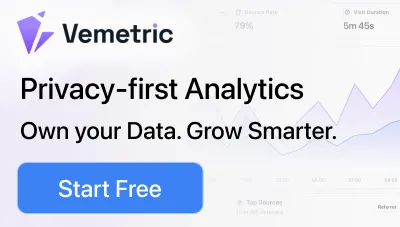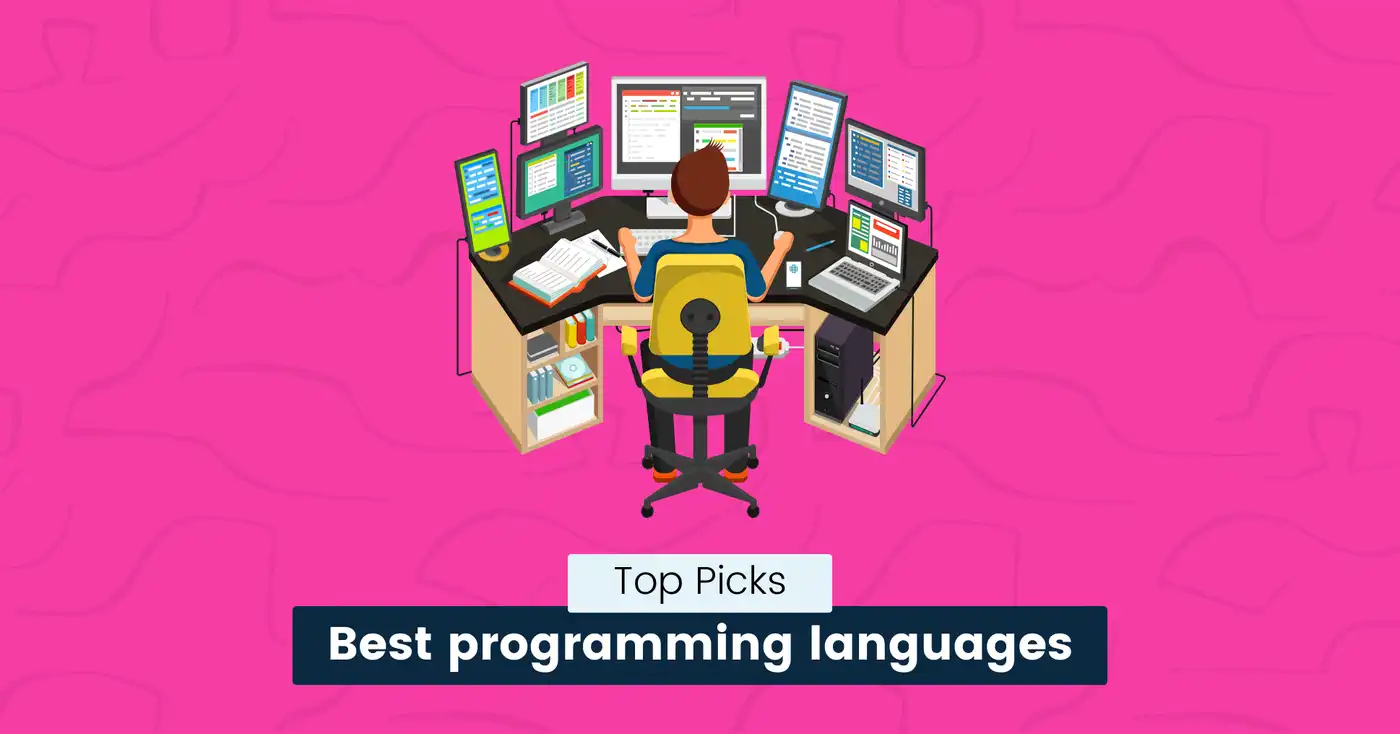
9 Best programming languages to learn in 2025
Are you looking to start coding as a hobby or improve your existing skills to get hired quickly?
The first step is to determine which programming language you want to learn.
Hundreds of programming languages exist with different use cases and applications.
So, how do you decide which language to learn? Which language will actually help you grow in your career?
Some languages are outdated or too niche, and choosing them can slow you down, stuck with irrelevant skills that don’t pay enough.
You need a language that aligns with the current market trends and provides opportunities for future growth.
This guide will help you choose the best programming language to learn so you can build the necessary skills and future-proof your career.
Let’s get started.
snappify will help you to create
stunning presentations and videos.
Top 9 Programming Languages to Learn
The right language can define the kinds of jobs you get and how much you earn.
The choice depends on your goals, the types of projects you want to work on, and how easy you want it to be.
This guide will help you determine which one to choose.
- Beginner-Friendly: If you’re new to programming, pick a language with simple syntax that is easy to learn.
- Job Demand: Choose a language that is in demand in your target industry and that organizations want to hire in.
- Learning Resources: Check for updated tutorials, courses, and communities available to support you if you get stuck.
- Long-term Goals: Pick a language that will still be relevant in 5-10 years, not just current trends.
- Experiment: Try coding in different languages to see what interests you the most. Free tools like online editors or beginner courses can help you decide.
Now that you have a general idea of how to decide, keep reading to see how the most popular programming languages stack up against each other and which one you should choose.
JavaScript
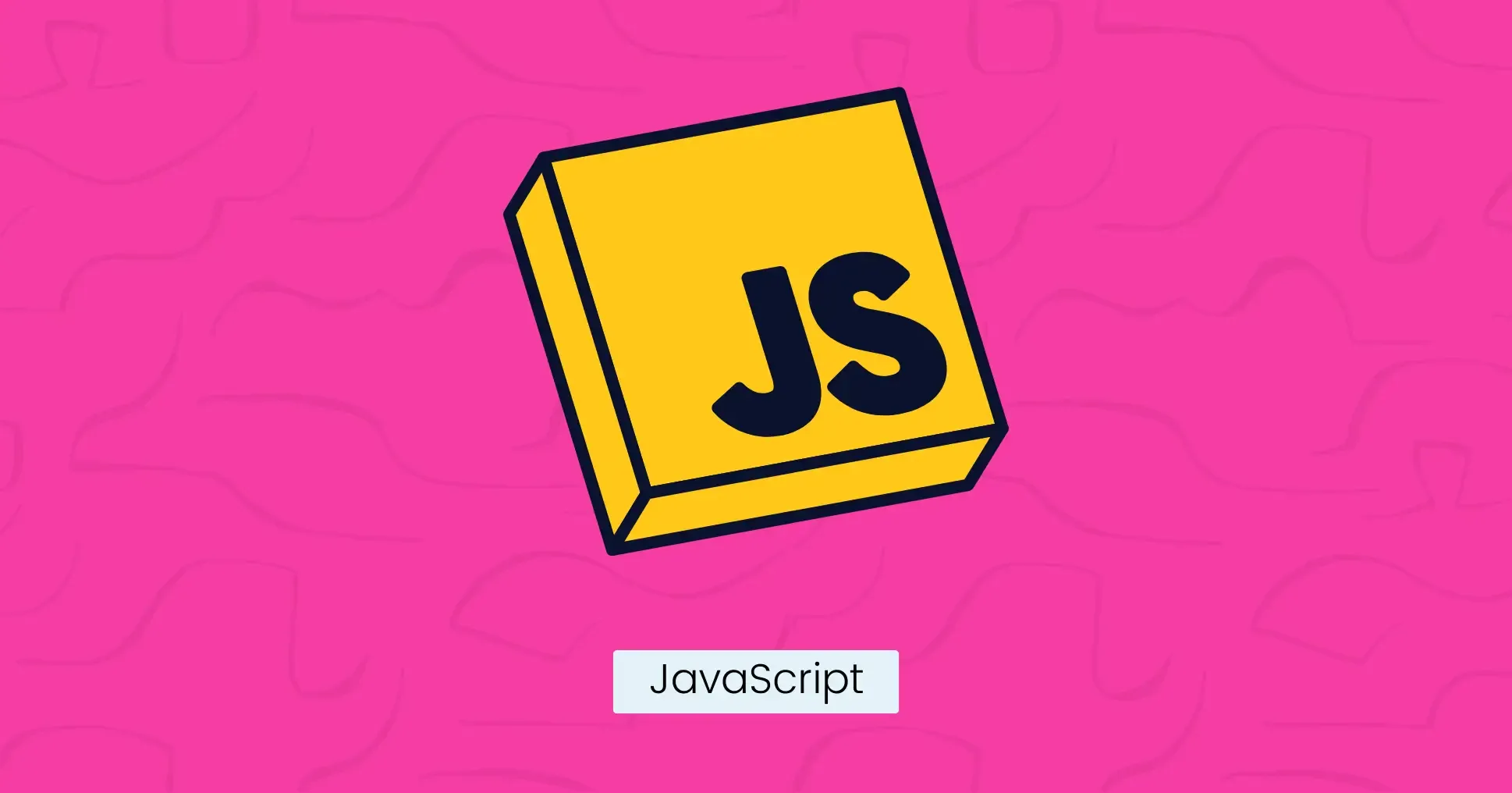
JavaScript is a high-level programming language primarily used to create interactive websites.
All the dynamic features you see on a web page, like animations, real-time updates, interactive forms, and drop-down menus, are powered by JavaScript running behind the scenes.
JavaScript, along with HTML and CSS, forms the foundation of the web, and it is the only language that lets you build an entire project from the user interface to the server using a single technology stack.
It is also one of the most in-demand programming languages in the job market due to its broad range of applications.
According to Stack Overflow’s 2024 Developer Survey, JavaScript is the most popular language, with 64% of professional developers using it worldwide.
Popular platforms like Facebook, Google, Netflix, and YouTube use JavaScript to show dynamic content to users.
Why Should You Learn JavaScript?
- Runs in all web browsers without needing any special setup.
- It can be used for both front-end and backend development.
- Rich ecosystem with many libraries and frameworks like React, Node.js, and Vue.js.
- It has one of the largest developer communities with plenty of tutorials, forums, and resources for easier learning and troubleshooting.
- TypeScript, a superset of JavaScript, builds on JavaScript’s strengths and makes code easier to understand in large-scale projects.
Use Cases:
- Creating interactive websites.
- Building mobile apps.
- Server-side applications (with Node.js).
- Single-page applications (SPAs).
- Adding real-time features like chat and notifications.
Best For: Its versatility makes it a great choice for full-stack software development.
Average Salary: JavaScript developers typically earn $100,000 - $120,000 per year.
Python
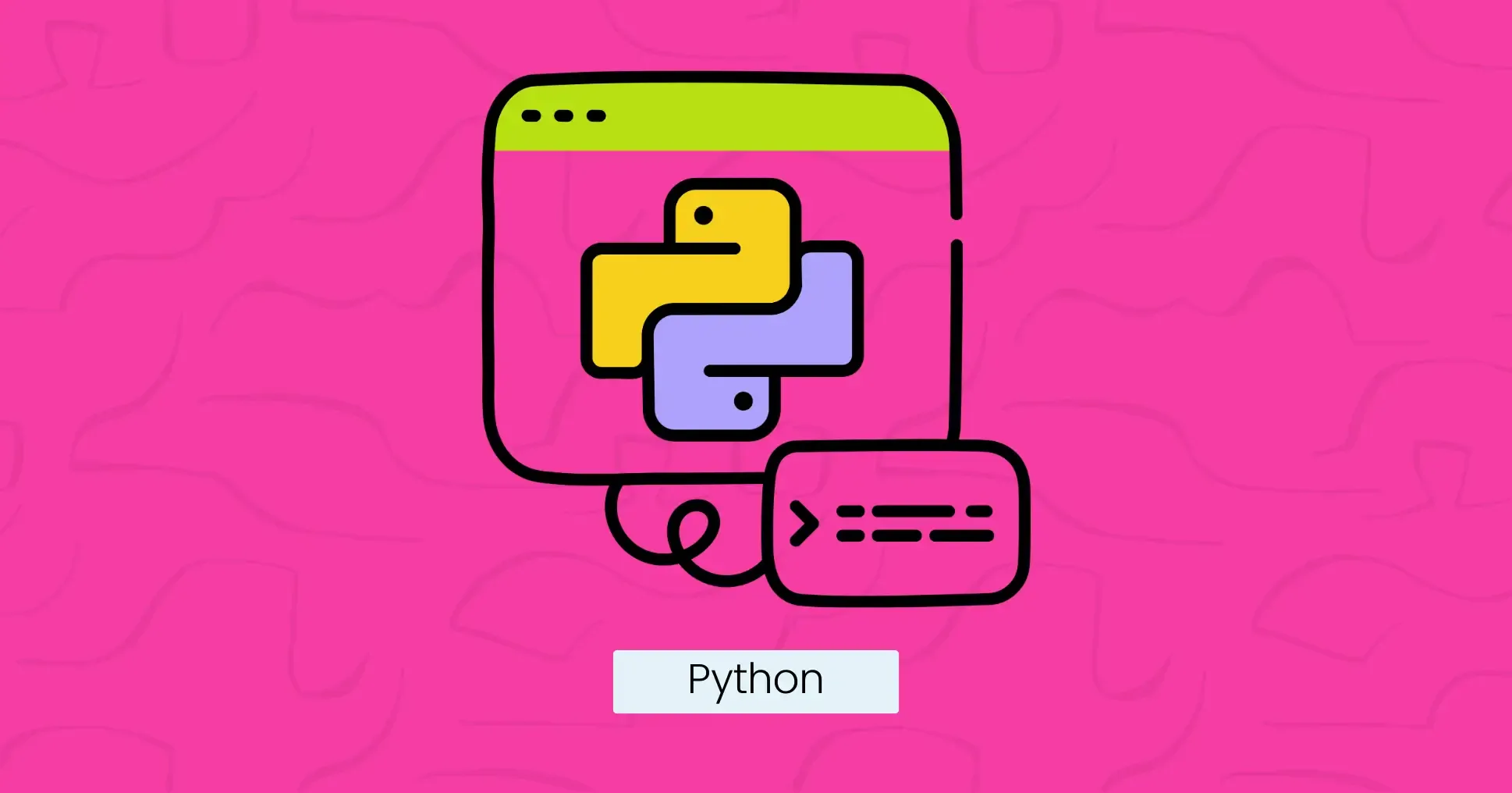
Python is a universal, high-level programming language known for its simplicity.
Its syntax reads like plain English, allowing you to focus on problem-solving instead of struggling with complicated details.
It is a general-purpose language popular across many industries due to its various use cases and applications.
Python’s ability to handle everything from automating tasks to powering AI models makes it a valuable tool for beginners and experts alike.
In fact, big tech names like Instagram, YouTube, and Spotify use Python, so it’s clearly in demand among employers.
Why Should You Learn Python?
- User-friendly and easy-to-learn language.
- Huge ecosystem, including powerful libraries and web development frameworks for various tasks like data analysis, AI, and web development.
- It is flexible and works for both small and large-scale systems.
- Python has a large, active community of developers. If you face a problem, you can easily find the solution online.
- It’s also used in industries like healthcare, finance, and tech that rely heavily on AI and data.
Use Cases:
- Backend web development (using Django or Flask).
- Creating AI and machine learning models.
- Data analysis and visualization.
- Graphical user interfaces (GUI).
- Writing automation scripts.
Best For: Python is a great all-rounder, making it a favorite for both beginners and professionals.
Average Salary: Python developers can expect to earn around $120,000 - $130,000 per year in the US.
Go

Go, also known as Golang, is an open-source programming language developed by Google.
Its simplicity and efficiency make it ideal for modern applications like cloud computing, deep learning, microservices, and distributed systems.
It offers the speed of low-level languages like C and C++ but with better performance and an easier learning curve.
It’s built for systems programming, which is why companies like Google, Uber, and Dropbox rely on it.
Why Should You Learn Go?
- Clean and easy-to-understand syntax.
- It is a compiled language that translates code directly into machine-readable instructions, making it faster than interpreted languages.
- Excellent for scalable and high-performance apps.
- Built-in support for concurrency to handle many tasks simultaneously.
Use Cases:
- Server-side applications.
- Cloud services and tools.
- Cloud-native application development.
- System and network programming.
- Creating command-line tools.
Best For: Cloud-based applications and building web APIs and microservices.
Average Salary: Go developers typically earn from $120,000 - $150,000 per year.
Java
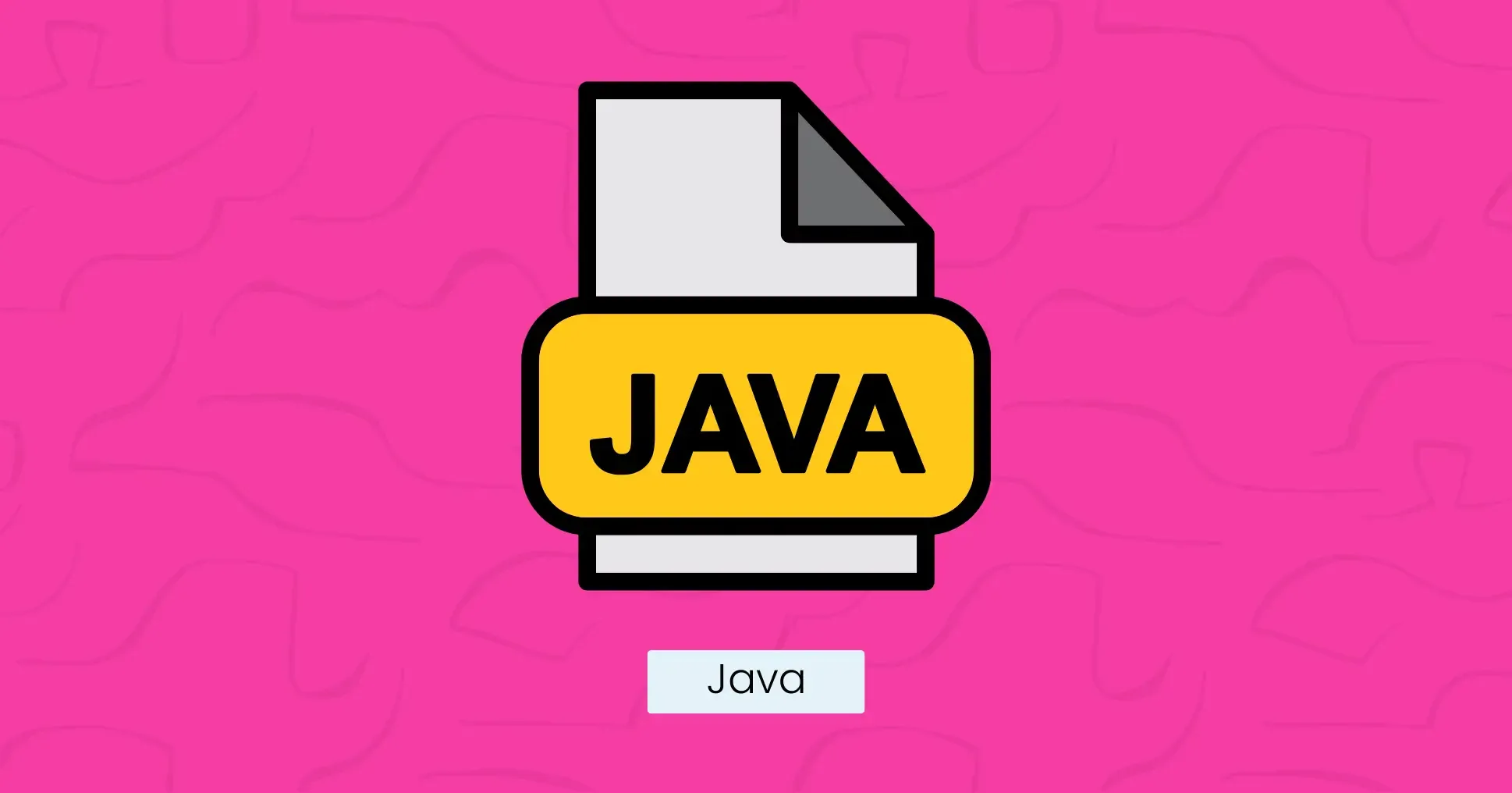
Supported by Oracle, Java is one of the most commonly used programming languages for enterprise-level applications, Android development, and backend systems.
While not as easy as Python or JavaScript, it is an excellent choice for beginners to grasp object-oriented programming.
Why Should You Learn Java?
- It is platform-independent and can run on any device or operating system.
- It is object-oriented and emphasizes code reusability and maintainability.
- Java ecosystem offers an extensive library of tools, frameworks, and APIs for different tasks.
Use Cases:
- E-commerce and business applications.
- Android application development.
- Scalable web applications and backend systems.
- Big data processing.
Best For: Developing enterprise-scale, high-performance projects.
Average Salary: Java developers typically earn between $70,000 - $120,000 per year.
C++
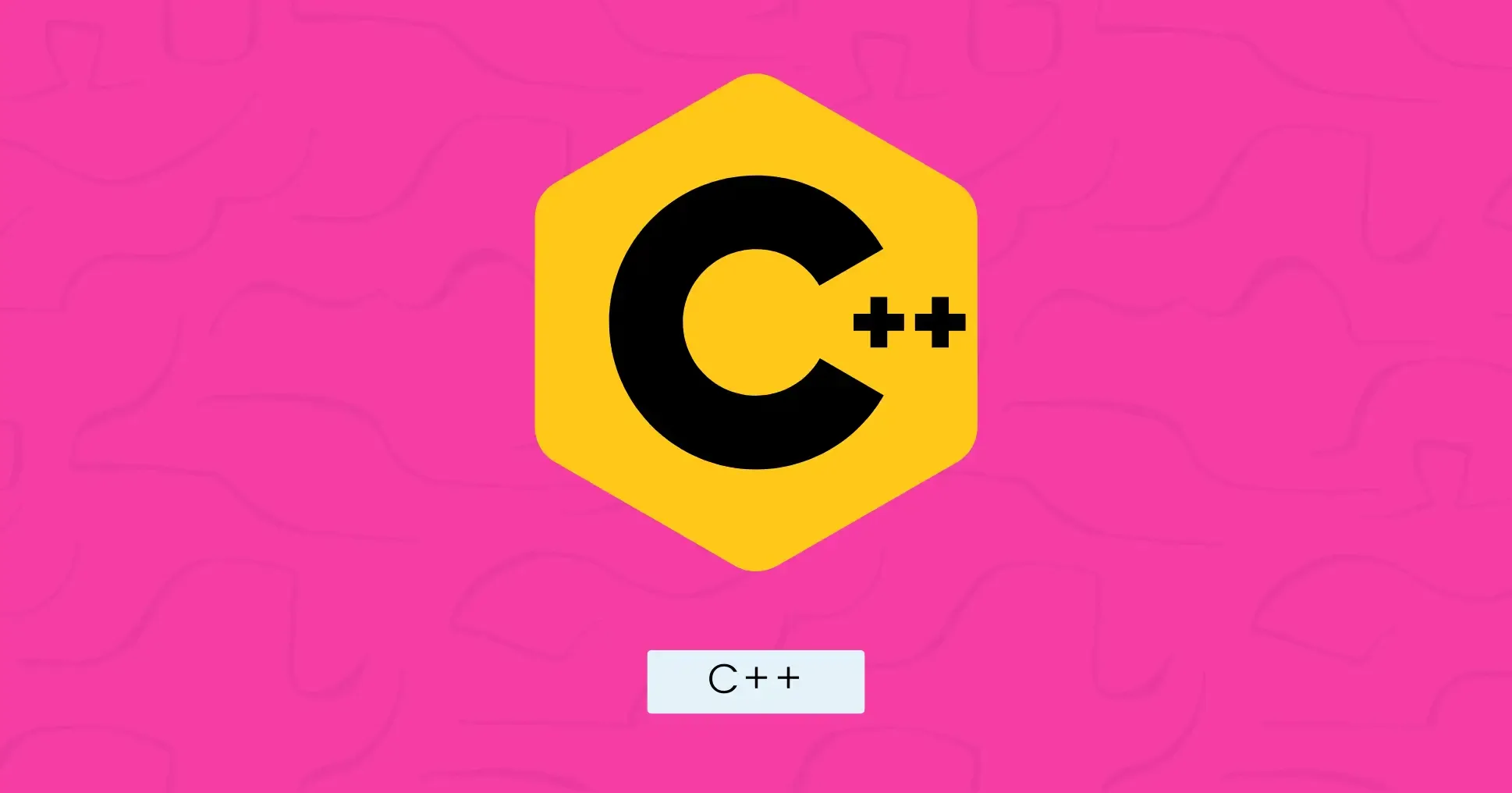
C++ is a low-level language, and its syntax is very similar to machine code, which makes it a little difficult to learn.
However, it is still a go-to for high-performance application development like gaming, operating systems, and embedded systems.
Why Should You Learn C++?
- It provides fine control over system resources, making it ideal for developing fast, efficient programs.
- It is widely used across industries such as video games, desktop software, and real-time systems.
- Supports object-oriented and generic programming paradigms, offering flexibility in how developers solve problems.
Use Cases:
- Game development.
- Operating systems.
- VR and robotics.
- Embedded systems.
Best For: System-level programming and performance-critical applications.
Average Salary: The average salary for an SQL developer ranges from $120,000 to $130,000 per year.
C#
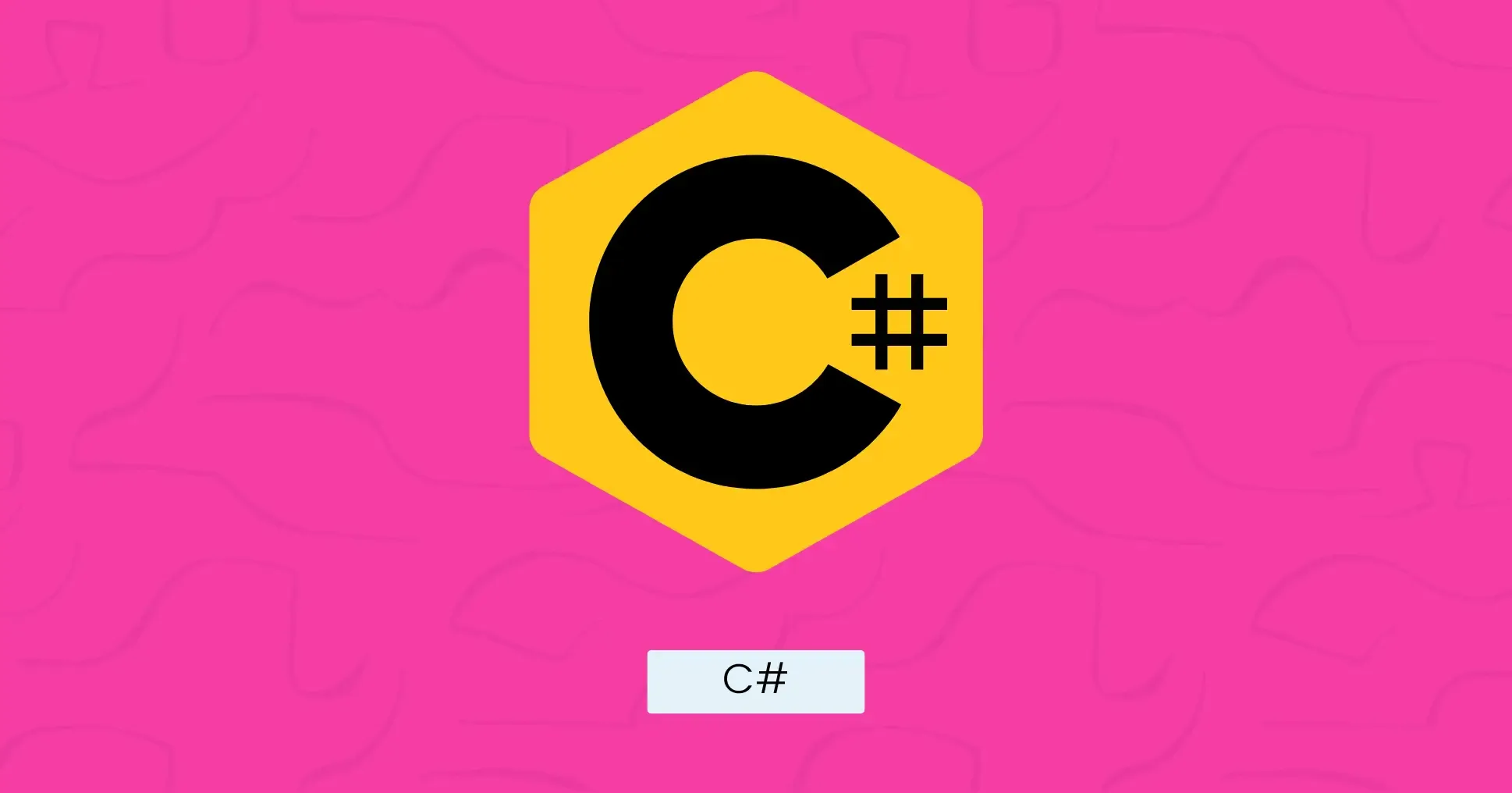
C# (pronounced C-sharp) is an object-oriented language developed by Microsoft as part of the .NET framework.
It is a general-purpose language used for building a wide range of applications, from desktop and web apps to mobile games and enterprise software.
C# has a similar syntax to C++, which makes it a bit difficult to learn, but it’s easy if you are already familiar with other C languages.
Why Should You Learn C#?
- It supports web, mobile, and gaming platforms like Xbox.
- C# is the primary language for Unity, one of the most popular game engines.
- It works with a .NET framework and offers many frameworks and libraries.
- It also integrates with Microsoft tools like Azure, SQL Server, and Windows operating system, making it a popular choice for enterprise and cloud-based applications.
Use Cases:
- Desktop and web applications.
- VR and game development with Unity.
- Mobile app development.
Best For: Professional-grade applications and game development.
Average Salary: C# developers typically earn from $120,000 - $170,000 per year.
Rust
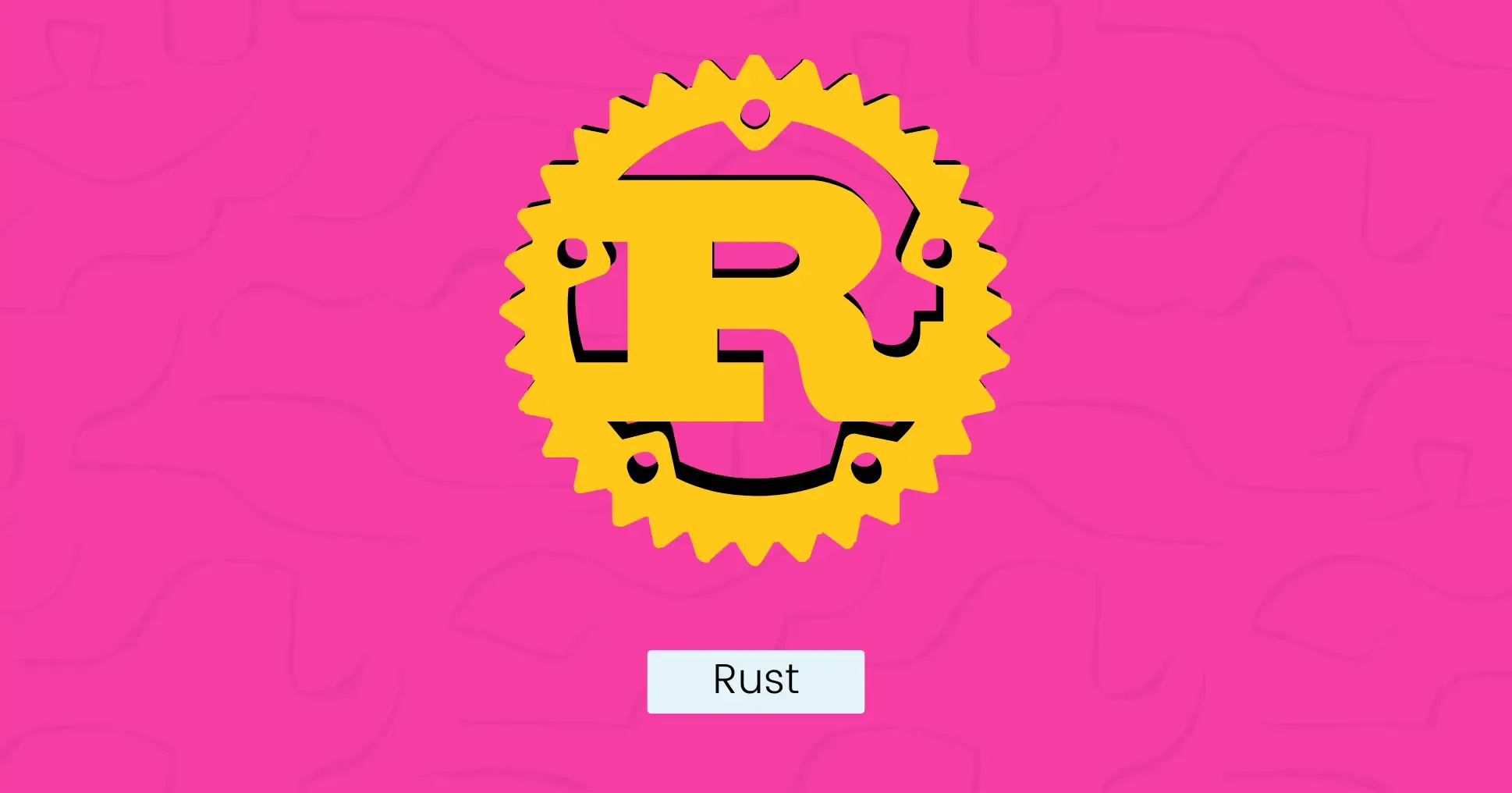
Rust is a modern, high-performance language developed by Mozilla.
Its popularity has increased because it solves a specific problem: how to develop secure and efficient software.
This makes Rust ideal for performance-critical applications where bugs can cause major issues.
Companies like Amazon, Google, and Dropbox use Rust in critical projects, reflecting its popularity among developers and widespread industry adoption.
Why Should You Learn Rust?
- Focuses on speed and safety.
- Rust’s syntax is similar to C++ but offers additional features to prevent common programming bugs.
- It helps avoid data races in concurrent applications and multi-threaded programming.
Use Cases:
- Embedded systems like smart devices.
- Web browsers and operating systems.
- Blockchain and Web3 development.
- Game development.
Best For: Fast and reliable development in fields like gaming, fintech, and IoT (Internet of Things).
Average Salary: Rust developers earn $80,000 - $150,000 per year.
SQL
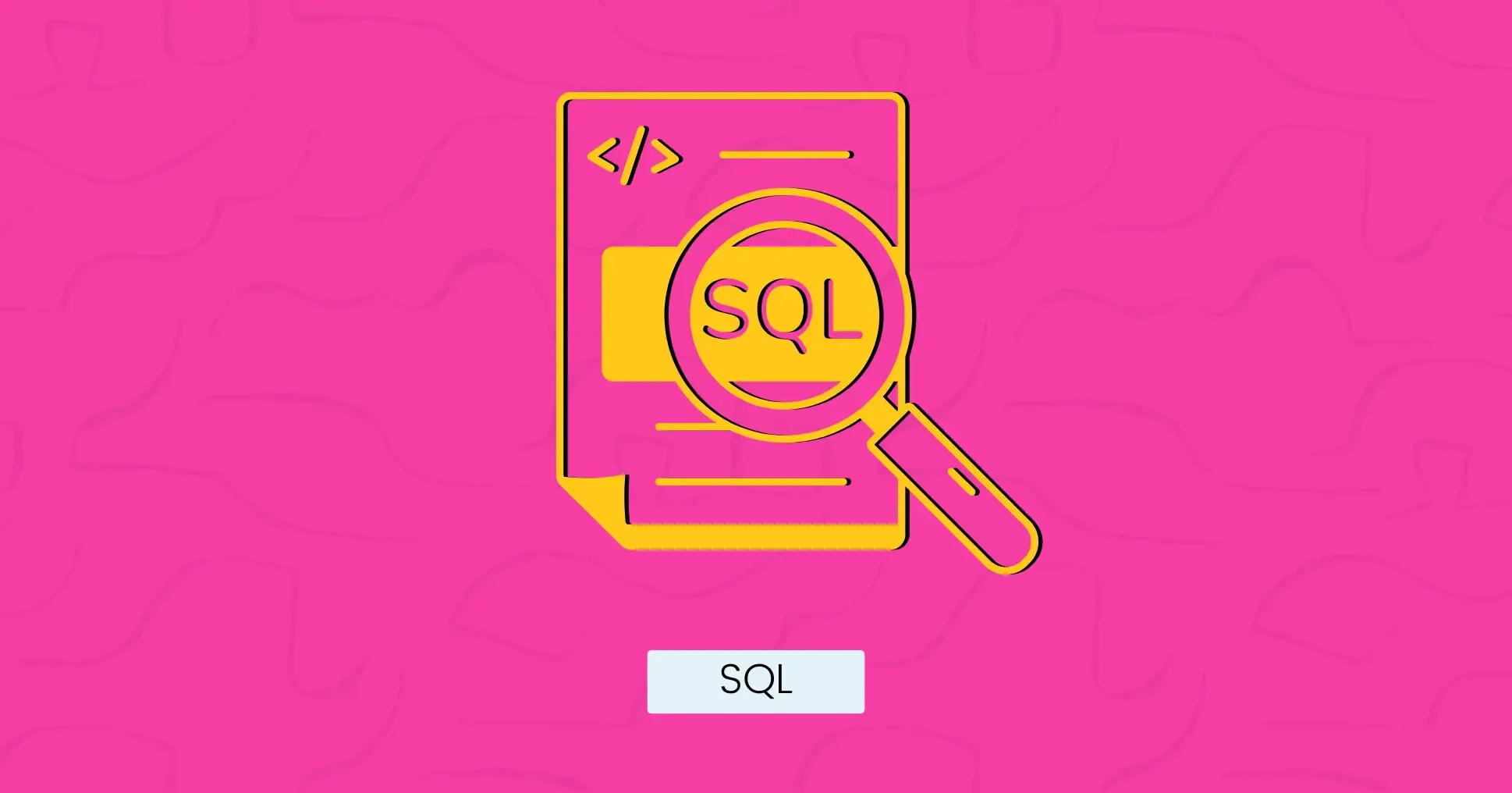
SQL (Structured Query Language) is the standard language for interacting with databases.
It is primarily used to retrieve, update, and manipulate data stored in relational databases and optimize large data sources for deep learning.
SQL has many applications in web development and data science because almost every application or system relies on databases like PostgreSQL and MySQL for storing and accessing data.
Why Should You Learn SQL?
- Readable and easy-to-learn syntax.
- Works consistently across most database systems.
- Wide applications across industries like healthcare, finance, and technology.
- Handles small datasets to large-scale enterprise-level databases.
- Compatible with programming languages like Python, Java, and PHP.
- Offers data security features to control access, ensuring only authorized users can view sensitive data.
Use Cases:
- Data analysis and management.
- Business analytics.
- Managing user data for websites or apps.
- Querying databases to generate reports and insights.
Best for: Working with data-related fields such as data science, business intelligence, or database administration.
Average Salary: The average salary for an SQL developer ranges from $60,000 - $130,000 per year.
Kotlin
Kotlin is a modern and concise programming language developed by JetBrains and officially supported by Google for Android development.
Its clean syntax and interoperability with Java make development faster and smoother while maintaining high performance.
Key Features:
- Clean and readable syntax that is easy to learn and maintain.
- Fully compatible with Java and can integrate with existing codebases.
- Powerful tools, libraries, and community support for mobile developers.
- It’s also used for backend development with frameworks like Ktor and Spring.
Use Cases:
- Android app development.
- Server-side applications.
- Cross-platform development.
Best For: Mobile app developers.
Average Salary: Kotlin developers earn $100,000 - $130,000 per year.
snappify will help you to create
stunning presentations and videos.
Final Words
Some languages are great for specific tasks, while others are more flexible.
Focus on learning basic programming terms and concepts, as these are transferable across languages.
Once you master one, picking up others will be much easier.
Here is a quick summary of the different languages listed above:
- Web Development: JavaScript, Python
- Mobile Development: Kotlin, Java
- Data Science and AI: Python.
- Game development: C#
- Systems Programming: Rust, C++
- Cloud or Backend Development: Go, Java
FAQs:
Which language is the best for complete beginners?
Python or JavaScript are the best choices for complete beginners because of their readable syntax and wide range of applications in software development.
Which language should I learn if I want to get hired quickly?
Learn JavaScript if you want to get hired quickly, as it has a lot of jobs, pays well, and is in great demand across startups and established companies.
